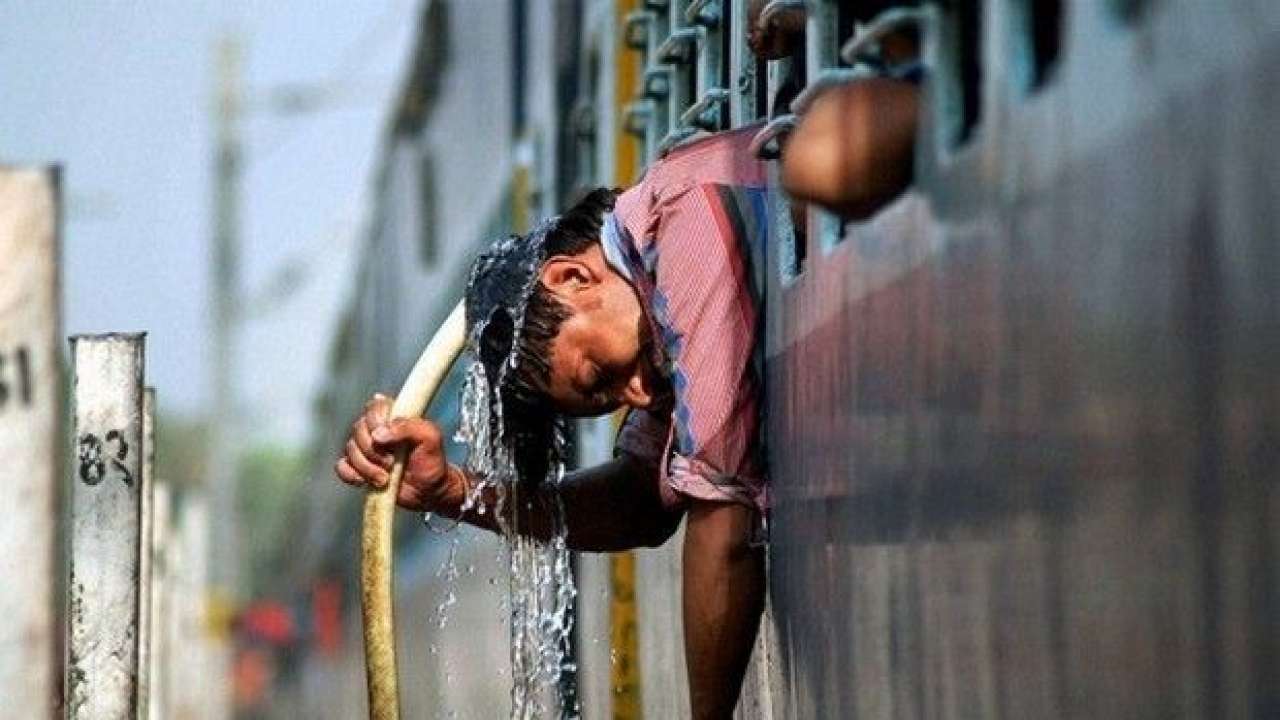
Heatwave Scorches Delhi, Turning It into a ‘Tandoor’ A relentless heatwave has engulfed the Indian capital of Delhi, sending temperatures soaring to a blistering 49 degrees Celsius (120 degrees Fahrenheit). The oppressive heat has transformed the city into an unforgiving “tandoor,” the traditional clay oven used for grilling. Residents have been flocking to hospitals in droves, seeking relief from heat-related illnesses such as dehydration, heat exhaustion, and heatstroke. The All India Institute of Medical Sciences (AIIMS), one of Delhi’s largest hospitals, has witnessed a surge in such cases. “We have been receiving over 100 patients with heat-related illnesses every day,” said Dr. Randeep Guleria, Director of AIIMS. “The majority of these patients are elderly, young children, or those with pre-existing medical conditions.” The heatwave, coupled with high levels of air pollution, has created a dangerous situation for Delhi’s residents. The air quality index (AQI) has consistently remained in the “severe” category, exacerbating the effects of the heat. “The heat and pollution are making it difficult for people to breathe,” said Dr. Arvind Kumar, a pulmonologist. “We are seeing an increase in respiratory problems, such as asthma and bronchitis.” Authorities have issued several advisories to the public, urging people to stay indoors during the hottest hours of the day, drink plenty of fluids, and avoid strenuous activity. However, many residents have no choice but to venture outside to work or run errands. “I have to go to work to earn a living,” said Vikas Kumar, a daily wage laborer. “But working in this heat is like working inside a furnace.” The heatwave is expected to persist for the next few days, with little respite in sight. Meteorologists predict that temperatures may reach a record-breaking 50 degrees Celsius (122 degrees Fahrenheit) later this week. As the heat continues to intensify, Delhi’s residents are bracing themselves for a grueling summer ahead. The city’s infrastructure, already strained by overpopulation and pollution, is struggling to cope with the unprecedented heat. Hospitals are overflowing, and essential services such as water and electricity supply are facing disruptions. The heatwave has once again highlighted the need for urgent action to address the city’s environmental and infrastructure challenges. As climate change continues to exacerbate extreme weather events, governments and policymakers must prioritize measures to protect their citizens from the deadly effects of heat.Asbestos Mismanagement Spurs Lawsuit Against Mental Health HospitalAsbestos Mismanagement Spurs Lawsuit Against Mental Health Hospital Illinois Attorney General Kwame Raoul has filed a lawsuit against Lake Behavioral Center and its contractors, alleging improper handling of asbestos during a demolition project. The lawsuit seeks an injunction to force the hospital’s owner/operator to develop a plan for site decontamination and safe demolition completion. It alleges that contractors failed to properly inspect for and dispose of asbestos-containing materials before demolition. According to the suit, the hospital campus included three unused buildings connected to the main building. Contractors allegedly failed to inspect for asbestos before demolition and improperly disposed of contaminated materials. “Defendants endangered public health by exposing people to hazardous asbestos materials,” said Raoul. “Asbestos remediation is crucial, and I will ensure accountability for creating this hazard and preventing further harm.” Asbestos inhalation can lead to fatal diseases such as lung cancer and mesothelioma. Demolition at the site was halted in November, with one building demolished, another partially demolished, and the third untouched. The lawsuit names KLF Enterprises, the demolition subcontractor, L Covington LLC, the hospital owner/operator, and Reed Construction, the general contractor. The Lake County State’s Attorney’s Office assisted with the lawsuit. “Everyone deserves a safe and healthy community,” said State’s Attorney Eric Rinehart. “The asbestos release at Lake Behavioral Hospital is an environmental hazard and a grave concern.” The lawsuit highlights the importance of adhering to safety and environmental regulations during construction and demolition projects to minimize risks to public health and the environment.
Delhi residents sweltered under a scorching heat wave, with temperatures soaring to a record high of 49 degrees Celsius (120 degrees Fahrenheit). The intense heat turned the capital city into a “tandoor,” a traditional Indian clay oven, leaving residents gasping for breath and flocking to hospitals. Hospitals reported a surge in patients suffering from heat-related ailments, including heatstroke, dehydration, and respiratory problems. Many people were seen fainting on the streets, while others sought refuge in air-conditioned malls and cinema halls. The heat wave has also taken a toll on the city’s infrastructure. Power outages and water shortages have become common, adding to the discomfort of residents. Traffic congestion worsened as vehicles overheated and broke down, causing long delays. Meteorological officials blamed the heat wave on a combination of factors, including a lack of rainfall, strong westerly winds, and high levels of pollution. They warned that the heat wave is likely to continue for several more days, advising residents to stay indoors, drink plenty of fluids, and avoid strenuous activity. The government has set up heat shelters across the city and advised people to take precautions to stay safe. However, as the heat wave intensifies, residents fear that the worst is yet to come.
Posted inNews